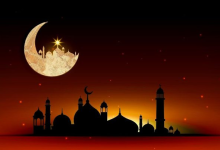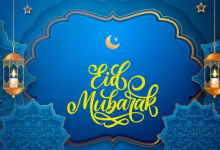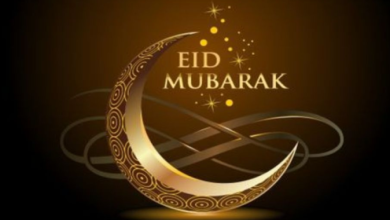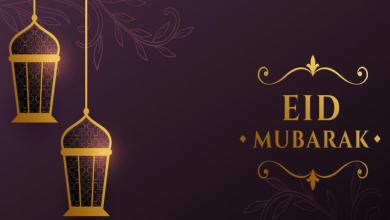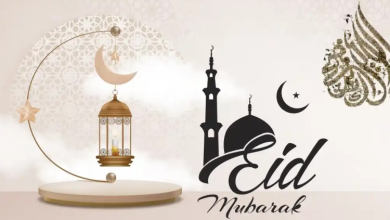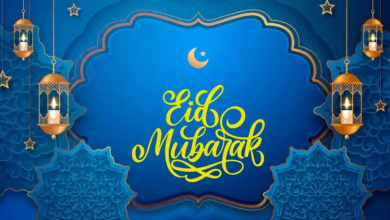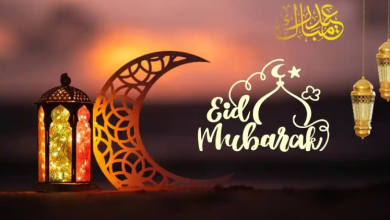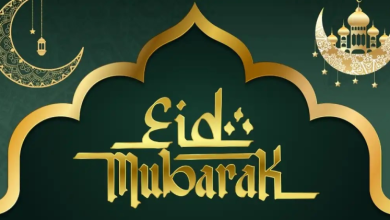Hadith on Eid Ul-Adha in urdu
Eid ul-Adha holds a special place in the hearts of Muslims worldwide. Known as the “Festival of Sacrifice,” this significant Islamic holiday commemorates the willingness of Prophet Ibrahim (Abraham) to sacrifice his son in obedience to Allah’s command. But what do the Hadiths, the sayings of Prophet Muhammad, tell us about this sacred festival? In this blog post, we will explore the importance of Eid ul-Adha, examine key Hadiths related to it, and reflect on their meanings and practical implications in modern times.
Understanding Eid ul-Adha in Islam
Eid ul-Adha is one of the most important Islamic holidays, marking the end of Hajj, the annual pilgrimage to Mecca. Celebrated on the 10th day of Dhu al-Hijjah, the last month of the Islamic lunar calendar, it honours the ultimate act of devotion and obedience by Prophet Ibrahim.
Muslims around the globe celebrate this day with prayers, charity, and the ritual sacrifice of an animal, usually a goat, sheep, or cow, to remember Ibrahim’s sacrifice. The meat from the sacrifice is divided into three parts—one for the family, one for relatives and friends, and one for those in need.
The Role of Hadiths in Understanding Eid ul-Adha
Hadiths are the recorded sayings and actions of Prophet Muhammad, providing a detailed account of his teachings and practices. They play a crucial role in helping Muslims understand and practice their faith, including the observance of important festivals like Eid ul-Adha.
In particular, Hadiths offer insights into the significance of Eid ul-Adha, guiding Muslims in properly observing the rituals and embodying the values of sacrifice, humility, and devotion to Allah.
Exploring Hadiths on Eid ul-Adha
Numerous Hadiths reference Eid ul-Adha, each highlighting different aspects of its significance and practice. These Hadiths emphasize the importance of the sacrificial act, the spiritual benefits of participating in the communal prayers, and the virtues of charity and kindness.
For example, one Hadith states, “There is no action more beloved to Allah during the days of Eid ul-Adha than the sacrifice of an animal” (Sahih al-Bukhari). This underscores the sacrificial act’s central role in the celebration and its profound spiritual significance.
Deep-Diving into the Specific Hadith on Eid ul-Adha in Urdu
One particular Hadith, often quoted in Urdu-speaking communities, is, “Eid ul-Adha ke din, sabse afzal amal qurbani hai” (Translation: On the day of Eid ul-Adha, the best deed is the sacrifice). This Hadith succinctly captures Eid ul-Adha’s essence, emphasizing the sacrificial act’s supreme importance.
This Hadith resonates deeply with believers in Urdu, reinforcing the cultural and linguistic ties that bind the Muslim community. It serves as a powerful reminder of the values of obedience, sacrifice, and devotion at Eid ul-Adha’s heart.
Understanding the Meaning and Relevance of the Hadith
This Hadith emphasizes the significance of the sacrificial act as the highest form of worship on Eid ul-Adha. It reminds Muslims that the essence of the festival lies not in the ceremonial act itself but in the spirit of obedience and devotion to Allah.
Sacrifice, in this context, symbolizes the willingness to give up something valuable in the service of Allah. It is a test of faith and a demonstration of the believer’s unwavering commitment to follow Allah’s commands.
Reflecting on the Practical Implications of the Hadith in Modern Times
In today’s world, the Hadith on Eid ul-Adha holds profound practical implications. It calls on Muslims to embody the values of sacrifice and devotion daily. This could mean making personal sacrifices for the greater good, helping those in need, or prioritizing spiritual growth over material pursuits.
The Hadith also encourages Muslims to participate actively in the communal aspects of Eid ul-Adha. By sharing the sacrificial meat with neighbours and the less fortunate, believers cultivate a sense of solidarity and compassion within the community.
Eid ul-Adha is more than just a ceremonial celebration; it is a profound expression of faith, obedience, and devotion to Allah. The Hadiths related to this sacred festival offer invaluable insights into its significance, guiding Muslims to observe it sincerely and humbly.
Muslims can deepen their appreciation of Eid ul-Adha and its underlying values by understanding and reflecting on these Hadiths. We encourage you to explore these teachings further and to incorporate their lessons into your daily life.
